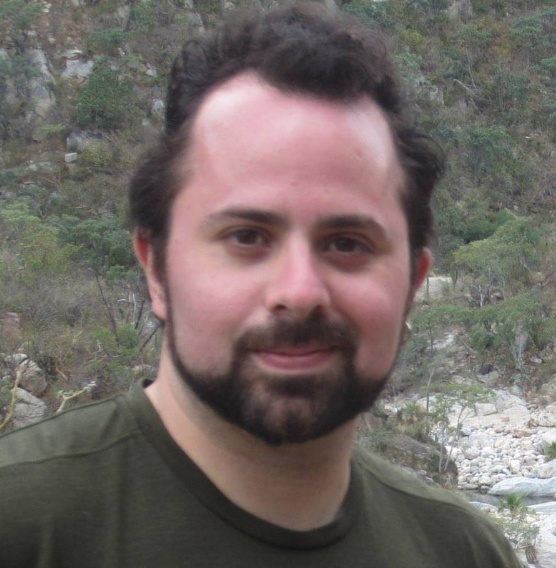Final Fantasy 15 deserves an easy mode
Make all the bro jokes you want, but there’s something immediately seductive about Final Fantasy 15. Even in just the Episode Duscae demo, it vividly captures the ineffable spirit that made the first game so successful nearly 30 years ago. Wilderness both strange and familiar is all around; you can practically feel the cool breeze as it sails by your party’s tent. The trees and rocks feel real, but there’s some kind of crystal dinosaur ten feet away and my whole party is dressed like they’re opening for the Eurythmics in 1983. That we’re just a few short months away from finally playing this game makes me deeply excited, but it also fills me with a bit of dread. Much as I want to explore this place, I know about the grind that will likely accompany it. That’s why I have a single fervent wish before Final Fantasy 15 finally comes out: I want an easy mode.
Before the wails of “git gud” or “play something else” start pouring in from every dank corner of the world, let me specify what I mean by “easy mode” in the context of Final Fantasy 15. An easy mode here wouldn’t necessarily mean making combat an instant cakewalk or fully automating character customization and growth. In the case of Final Fantasy, the easy mode would need to be something that doesn’t strip challenge from the game so much as it does the time investment needed to fully experience the world and story. It means reconsidering what’s tough for a player to get through in terms of not just combat difficulty, but story pacing, character customization, and even just moving through the game’s world; an overhaul of everything you do in an RPG based on having only limited leisure hours.
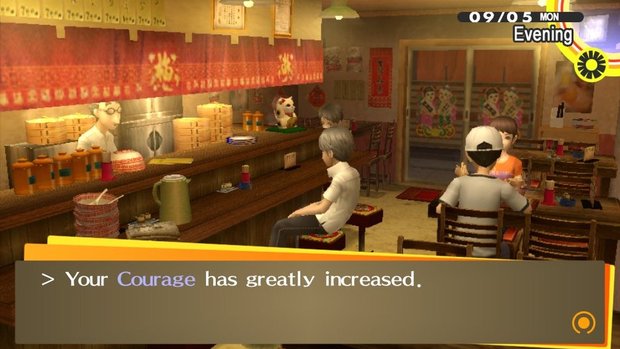
Many of the best RPGs released in the past few years have tried to create this sort of dynamic, but none have properly captured it. Persona 4 Golden for PS Vita actually has a Very Easy setting that more or less automates combat for the duration of the game, which is a boon for anyone that wants to play it in a time-efficient way. As long as you equip newly discovered equipment and summonable personas found in dungeons, it leaves you free to spend time in the game’s life simulation. Final Fantasy and other classic RPGs have always drawn fine lines between story-focused sequences and adventuring sections where you explore and fight. Persona 4 does as well, with sprawling multi-floored dungeons to brawl through totally separate from the small town where you interact with its diverse cast of characters. By letting players skip the steepest fighting challenges, the Very Easy mode effectively halves the length of the game from more than 90 hours to around just 50 hours. While this approach would help open Final Fantasy 15 to anyone with just a little time to play, it would also end up suffering just like Persona 4 Golden does.
The Very Easy mode is ultimately only a half step solution to the problem. The biggest issue is that because the game offers no resistance whatsoever, there’s no need to customize and cultivate your roster of personas, the collectible demons you use for fighting. That ends up killing any sense of attachment to personas and limiting the appeal of developing the interpersonal character relationships that strengthen those personas. The absence of mechanical challenge in a never-ending tide of game story crushes the essential balance between narrative and world building that makes Persona, Final Fantasy and any RPG appealing in the first place.
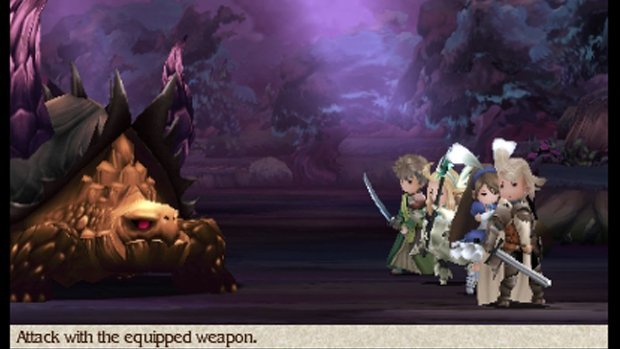
Square’s own Bravely Default approaches this balancing act in a more dynamic way than Persona 4, but still fails to properly weigh time investment against meaningful interaction. At any point, you can alter the difficulty of the game’s combat as well as the frequency of its random battles. If you’re sick of getting into a fight with scrubby axefighters every few feet in the Mythril Mines, lower the encounter rate and raise the difficulty to maximize the challenge and experience earned. In theory, this is an ideal solution for Final Fantasy 15. Enemies in 15 wander out in the open and attack when you get close to them as opposed to randomly ambushing you unseen like in Bravely Default, but a slider changing how aggressive and how strong enemies are could speed up exploration significantly. Episode Duscae already suffers from some battles becoming drawn out because a dozen or more enemies will wander by and join the skirmish.
Bravely Default ultimately fails, though, because its difficulty adjustments still close off whole swaths of the game. The job system that lets you customize your characters with different roles like mage or fighter is effectively shut down the faster you try to play. If you get to the back half of the game, which irritatingly forces you to revisit every location from the first half, simply turning down the encounter rate to keep the game moving will leave you under-leveled, under-specialized in multiple jobs in the game, and ultimately unable to get through its gauntlet of vicious final bosses. Final Fantasy 15’s easy mode needs to keep things brisk, but also needs to let you actually reach the end.
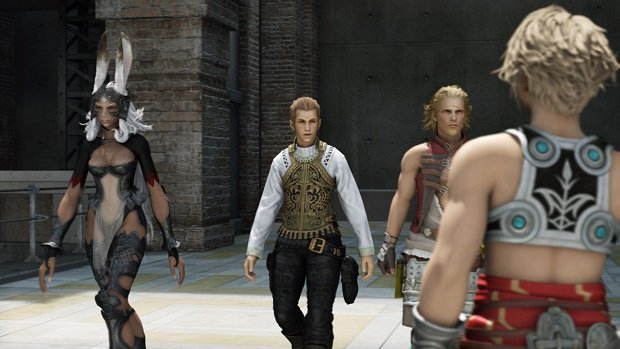
Even though there are no actual difficulty settings baked into it, Final Fantasy 12— to which Final Fantasy 15 bears more than a passing resemblance —can be played in a way that comes very close to being an ideal easy mode for the series. By using a save file called “The Perfect Start” made by GameFAQS user VinceTheBone, you can start 12 at its very first story mission with low level characters just like if you were playing normally. It also starts you off with every weapon, piece of armor, and item in the game as well as around 12,000 license points for every character as they join the story, letting you unlock more or less every single skill in the customizable license board from the very start.
Weekly digests, tales from the communities you love, and more
While not as perfect as its name suggests, Perfect Start does almost everything a Final Fantasy 15 easy mode would need to do. Multiple levels of challenge are preserved. The pleasure of customizing each character specifically on the license board is gone, but you still have to build their Gambits, the automatic interlocking behaviors that define how Final Fantasy 12’s characters work in combat. Plus, with multi-skilled characters that are still weak thanks to their low levels, you have access to many of the game’s most difficult dungeons and fights right from the start. Super difficult areas are integrated directly into playing through the story rather than being relegated to post-game or pre-end play after dozens and dozens of hours of grinding.
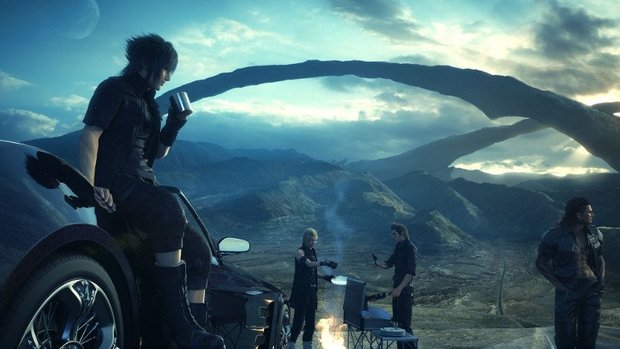
That grind is the only thing that’s ultimately lost when you play through Final Fantasy 12 this way. The hours upon hours of repetition--go to a place, fight and find treasure, leave, then dive into menus for an hour tinkering with abilities, only to go and do it again without pushing the story forward--are stripped out. The result here is that you get to more freely enjoy exploring Final Fantasy 12’s maze-like interconnected world. The game is balanced in way that it fights back, but doesn’t waste any time, giving you access to everything, provided you’re willing to play smart. Suddenly a 65-plus hour game is reduced to a breezy, rewarding 22 hours.
There’s nothing inherently wrong with the grind in Persona 4, Bravely Default or any Final Fantasy. The grind can be its own kind of pleasure, whether it’s in spending hours fiddling to make your characters the most perfectly specific fighting machines you want or wandering a dungeon you like, just fighting forever and gaining experience. People have kept playing RPGs for decades because of the grind’s addictive nature, the pleasure of repeating the same action over and over again. Final Fantasy 15 can hide a deeply enjoyable grind in its guts and it certainly doesn’t need an easy mode to be a great game. If Hajime Tabata’s team delivers a game as consistently interesting as it is in just the couple of hours it takes to play through Episode Duscae’s story, then it will be something well worth experiencing. That said, it also deserves an easy mode, a thoughtfully balanced route of access for anyone that can’t devote hundreds of hours to video games.
